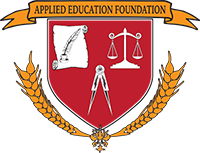Center on Education and the Workforce “strives to better articulate links between education, career preparation, and workplace demands. We conduct research in three core areas with the goal of better aligning education and training with workforce and labor market demand: jobs, skills, and people.” https://cew.georgetown.edu and https://cew.georgetown.edu/publications/reports/
The Hamilton Project, Career Earnings by College Major, “Over the entire working life, the typical college graduate will earn $1.19 million in today’s dollars [2016]. This is more than twice as much as the lifetime earnings of a typical high school graduate ($580,000), and $335,000, or 39 percent, more than that of a typical associate’s degree graduate. What is less understood is that not all college degrees are the same. Earnings differ dramatically across majors—in starting salaries, wage growth over time, and ultimately lifetime earnings. Using data from the U.S. Census Bureau’s American Community Survey, we have calculated annual median earnings from career start to retirement for 80 majors. We have also calculated lifetime earnings for these majors, taking into account that some graduates fare better than others, even within the same major.” http://www.hamiltonproject.org/charts/career_earnings_by_college_major/
Salary.com, Service for human resource management in compensation data. http://salary.com/category/salary/ and http://www.salary.com/category/education/
Payscale, “New real-time and market-enabled compensation models are providing better intelligence for both companies and employees, transforming the once dark art of compensation into a data-driven science.” http://www.payscale.com/college-roi/major and http://www.payscale.com/data-packages/college-roi-2013/college-roi-2013-schools-by-major
College Measures “College MeasuresTM is a partnership between the American Institutes for Research and Optimity Advisors, focused on using data to drive improvement in higher education outcomes in the United States. We have created this partnership because we are deeply concerned about improving higher education in the U. S., and we believe that important underlying data is underexposed and underutilized by students, parents, policymakers, and even by institutions themselves.” http://www.collegemeasures.org/page/About-us.aspx
Workforce Data Quality Campaign, “Workforce Data Quality Campaign (WDQC) is a non-profit, non-partisan initiative that advocates for inclusive, aligned and market-relevant data systems used for advancing the nation's skilled workforce and helping U.S. industries compete in a changing economy.” http://www.workforcedqc.org/who-cares-about-data
Federal Reserve Bank of New York, The Labor Market for Recent College Graduates, “This web feature provides regularly updated information on labor market outcomes of recent college graduates. The underlying data are available for download.” https://www.newyorkfed.org/research/college-labor-market/index.html
National Student Clearinghouse Research Center, “The National Student Clearinghouse Research Center strives to comprehensively document the nature and scope of Clearinghouse education data, while identifying processes that can enhance the ability of researchers, educators, and policymakers to leverage the data for informed decision-making.” https://nscresearchcenter.org
The Programme for International Student Assessment (PISA) “is a triennial international survey which aims to evaluate education systems worldwide by testing the skills and knowledge of 15-year-old students. To date, students representing more than 70 economies have participated in the assessment.” https://www.oecd.org/pisa/aboutpisa/
The National Bureau of Economic Research, “The NBER is a private, non-profit, non-partisan organization dedicated to conducting economic research and to disseminating research findings among academics, public policy makers, and business professionals. NBER-affiliated researchers study a wide range of topics.” http://www.nber.org/info.html
